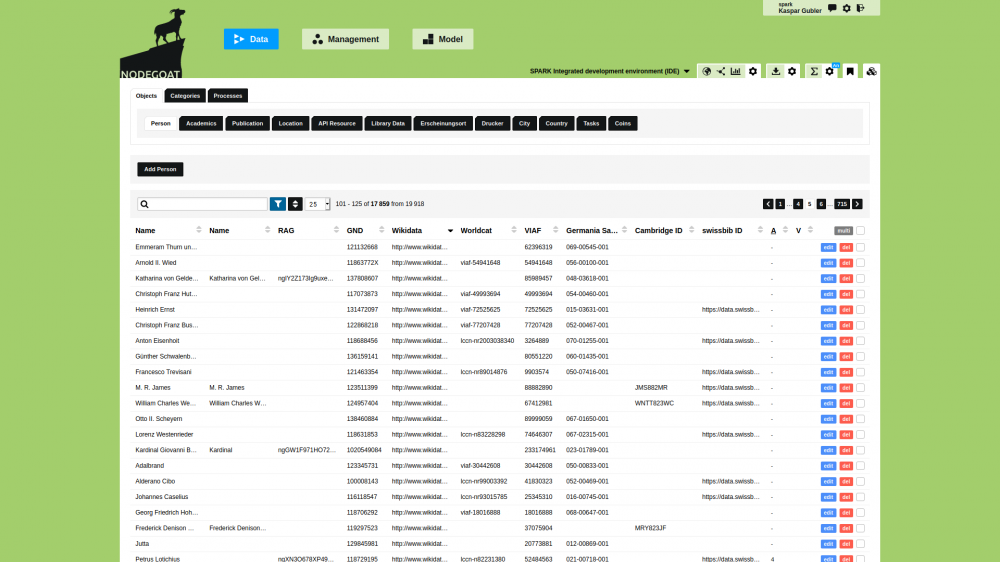University of Bern - Faculty of Humanities
CORE Admin
After a successful pilot in 2020, the Faculty of Humanities at the University of Bern has established nodegoat support services at the Digital Humanities program of the Walter Benjamin Kolleg.
The project 'Dynamic Data Ingestion: collecting, linking and providing interoperable research data' runs on the nodegoat Go installation of the Faculty of Humanities at the University of Bern. This Swiss National Foundation (SNSF) funded SPARK project collects and reconciles data via APIs from various data sources.
Kaspar Gubler (University of Bern) Thanks to this technically ambitious project, I can collect, analyse and visualise sets of research data via the Application Programming Interface ('API') in nodegoat, creating a new meta-database with interoperable Linked Open Data (LOD). LOD has always been challenging on a technical and content level, which are interdependent. On the technical level, the most important prerequisite for data exchange is missing, namely a kind of “industry standard” for a uniform query language and a standardised output format as well as a standardised structure of the data published via API. Many data projects have individually designed APIs and project-specific data structures that do not comply with international standards and/or there is a lack of adequate documentation of the data output.
At the content level of LOD, we are faced with challenges due to the heterogeneity of research data, especially in the humanities, which inevitably leads to inconsistent database structures and makes data exchange more difficult. Despite numerous international initiatives in recent years, no research project has yet been able to gain significant or groundbreaking scientific knowledge through Linked Open Data, especially not in the Digital Humanities. This is where the Data Reconciliation of nodegoat comes in. With the Data Reconciliation Module in nodegoat, heterogeneous data can be searched automatically with controlled vocabularies, the found terms can be stored and used in data analysis (for example in network research).
Access: nodegoat.unibe.ch
Project Website: dh.unibe.ch/dienstleistungen/nodegoat_go